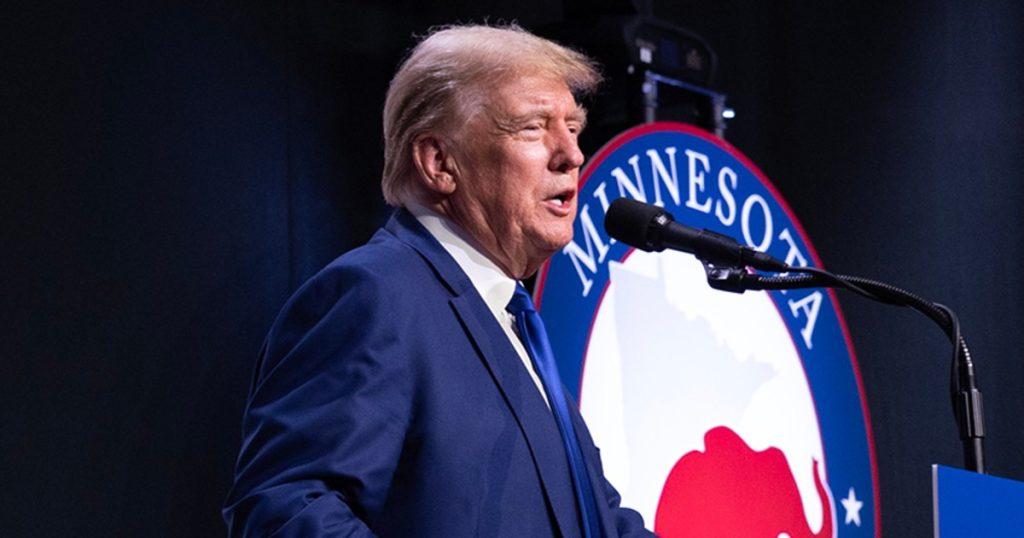Former President Donald Trump falsely claimed during a speech in St. Paul that he had won Minnesota in the 2020 election, despite President Joe Biden actually carrying the state with 52.4% of the vote compared to Trump’s 45.3%. This false assertion is part of a pattern of election denialism and conspiracy theories that Trump has perpetuated since his loss in 2020. Democrats have won Minnesota in every presidential election since 1976, with Trump’s assertion contradicting historical voting trends.
During his speech, Trump confidently stated that he would “win this state” in the upcoming November election, despite his loss in 2020. He previously claimed that he won Minnesota in 2020 in interviews with local media, stating that he thought he had won easily, only to backtrack and say that he did not quite make it. Biden’s campaign spokesperson criticized Trump’s behavior as being “unhinged” and described him as a “weak, desperate, and pathetic loser.”
Trump made a similar false claim about winning Wisconsin by a large margin during a rally, despite losing the state to Biden in 2020. Polling data indicates that Biden and Trump are in a tight race, with an NBC News poll showing both candidates neck and neck among registered voters. Despite Trump’s efforts to challenge the results of the 2020 election and promote the narrative that he actually won certain states, there is no evidence to support his claims of widespread voter fraud or election rigging.
The margin of victory for Biden in Minnesota was substantial, with over 233,000 votes separating him from Trump in the 2020 election. This reflects the broader trend of Democratic candidates consistently winning the state in presidential elections for over four decades, with the exception of Republican Richard Nixon in 1972. Trump’s repeated claims of victory in Minnesota and other key swing states that he lost in 2020 are baseless and have been widely debunked by election officials and independent fact-checkers.
As the 2022 midterm elections approach, Trump’s continued insistence that he actually won certain states in 2020 could impact voter confidence and fuel further division in the political landscape. By perpetuating baseless claims of election fraud and refusing to accept the results of the 2020 election, Trump is positioning himself at odds with traditional democratic norms and the principles of a peaceful and orderly transition of power. This ongoing behavior raises concerns about the potential impact on the upcoming elections and the overall health of American democracy.


